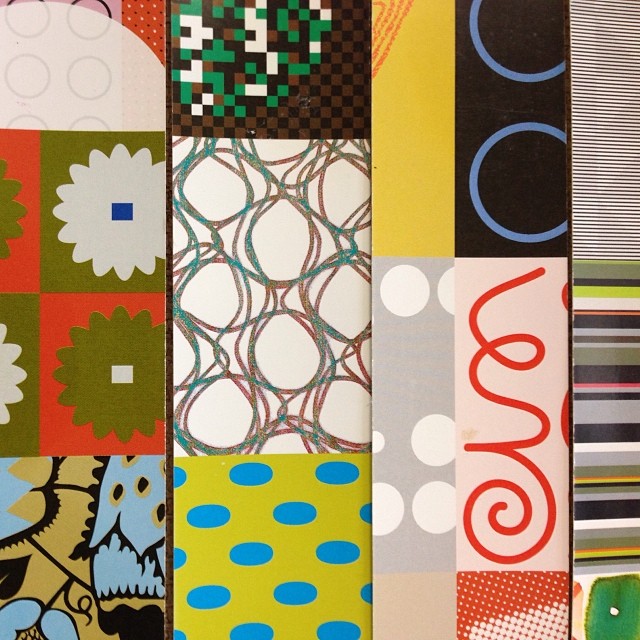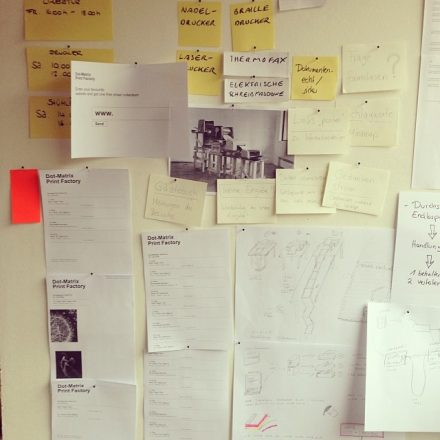Lessons Learned: MBAs & MFAs

In a recent presentation to The Creative Coast, a group of entrepreneurs and creatives working to enhance economic development in the Savannah area, my colleague Glenn Platt and I put forward a common contemporary notion – that the MFA is the new MBA. This concept has been batted around quite a bit during the last several years by prominent thinkers such as Daniel Pink, and it’s been published and discussed in leading publications such as Fast Company.
Glenn and I agree with this notion, but we wanted to extend our thinking to include the other side of the equation. Yes, what can MBAs learn from MFAs, but also, what can MFAs learn from MBAs?
In our presentation “Through the Looking Glass: What Can Designers and Business Folks Learn from Each Other? An MFA for MBAs and an MBA for MFAs” we gave a list of key lessons learned from each of the degrees. It was interesting to see how many were in common or were similar to one another and just used different terminology. In fact, we got into an interesting discussion with The Creative Coast group about how important degree-specific and/or discipline-specific language is to being understood and respected in a cross-disciplinary environment. Below is a summary of our “lessons learned.”
Glenn’s MBA list included:
- Fail early and often (or at least be ready to).
- Know when to bring in the expert and experience, and when not to.
- Look for innovation within the organization.
- Be responsive and organic, but have a north star.
- For most of us success takes time and is hard.
- Stay current and read everything.
- Identify your desert island team, and work with them.
- Meet everyone, and help all of them.
- Explore unintended consequences.
- Everything is negotiable, and all opportunities have costs.
- Solve problems, don’t just deliver products/services.
- Build an audience, but don’t wait for the fanfare.
- Marketing is not a department. We are all in marketing.
- Generally speaking you are not the customer. Be authentic to the real customer.
Peg’s MFA list included:
- The notion of the sole creator is often a fantasy. Learn to collaborate.
- You will have to constantly reinvent yourself and retool. Get used to it.
- Apply creativity to any situation or environment, not just creative ones.
- Take risks, stretch your thinking. You have permission to fail.
- Use rapid prototyping and iteration to refine your ideas.
- Know when to let go of ideas that don’t serve a higher purpose or venture.
- Engage your audience – entertain, educate, enlighten.
- Context is everything.
- Learning to take critique is critical to your growth. Learn to listen. And learning how to give constructive critique is critical to your colleagues’ success, and your success.
- Gain from others’ insights and unique experiences. Learn from them.
- Everyday is a school day. You can learn from every situation.
- Design is as much about strategy and process as it is about aesthetics. Don’t let anyone say to you, “Make it pretty.”
- Make sure your project goal/problem statement is clearly defined before beginning to design.
- Don’t design in a client meeting or critique. Gather the feedback and then find time to focus on refining.
- Research is key. Be an educated problem solver. But pay attention to your gut. All the research in the world won’t give you a creative answer.
- Question the Client. They may think they know what they need/want but it’s your job to make sure.
- Question the User. Co-create.
- A high level of craft and attention to detail is still very valuable, in any discipline.
- Learn to look. Learn to listen. Notice everything. Being truly observant and sensitive will set you apart. Take it in and store it for future use.
Our next step is to think more deeply about this issue of discipline-specific language and develop an “MBA vocab cheat sheet” for MFAs and an “MFA vocab cheat sheet” for MBAs. We’ll share this opening and widely – so be looking for it.

